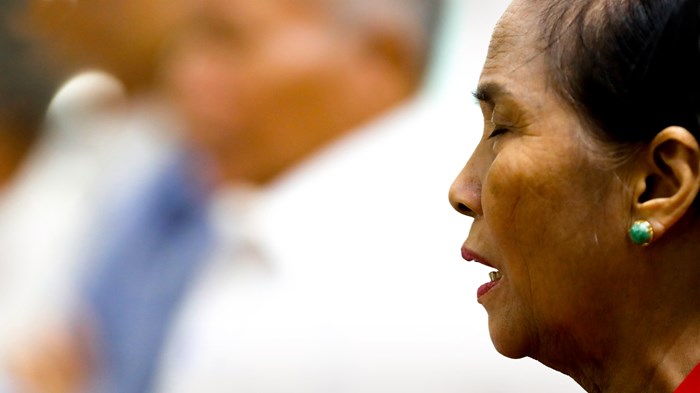
Operating a church in Vietnam just became even more difficult thanks to new government regulations that went into effect over the weekend. Under Decree 95, the government will now require religious groups to submit financial records and allow local government officials to suspend religious activities for unspecified “serious violations.”
Nguyen Ti Dinh of Vietnam’s religious affairs committee said the guidelines will improve how the government manages religion by implementing uniform measures for the 2018 Law on Belief and Religion, which requires religious groups to register with the government. Observers believe the decree is Vietnam’s attempt to demonstrate to the international community that it is trying to increase religious liberty and to get off the US State Department’s Special Watch List for countries engaged in religious freedom violations.
Yet religious liberty advocates and local church leaders believe the new rules will do the opposite. Instead of making it easier to register churches, the government is requiring more oversight and control. If the Vietnamese government is trying to show the international community that it is serious about religious freedom, noted Hien Vu, Vietnam program manager of the Institute for Global Engagement (IGE), it needs to explain how the new policy would achieve that.
“With this decree, it’s like Vietnam shot themselves in the foot,” Vu said.
The Southeast Asian country, where Christians make up 8 percent of the population, is ranked No. 35 in the Open Doors’ list of most difficult countries to be a Christian. While Christians can worship freely in bigger cities, believers among ethnic minority groups and in rural areas still face social exclusion, discrimination, and attacks. Religious groups involved in human rights advocacy have also been harassed.
Yet due to work by IGE and other international groups, in the past few decades government officials have become more open to listening to Christians and making space for Christianity in the country.
Decree 95 came as a surprise to religious liberty advocates and local church leaders when the government first made it public in December. It expands on a previous decree (Decree 162) by including measures that allow the government to shut down religious groups and adding requirements for receiving and reporting donations, including from foreign sources, according to Morning Star News.
In 2022, a draft dubbed the “punishment decree” (due to its focus on punishments for infraction of the religious law) drew harsh criticisms from religious leaders and even some government officials. That decree was eventually tabled. But with Decree 95, the government skipped the step of soliciting public opinion and put the new decree into effect three months after announcing it.
To Vu, the most concerning aspect of the new decree is how it expands the government’s financial oversight of churches. An article of the decree reads, “Within 20 days, religious organizations and religious affiliates that receive financial aid are responsible for sending reports on the results of the use of grants to the competent state agency.”
“The government wants to really know where, how, what—everything about receiving financial support,” Vu said. “The government also needs to know how you spend it.”
While ostensibly the reasoning is to increase financial transparency, realistically, the rules are nearly impossible for many of Vietnam’s Protestant churches to follow, as house churches are often not registered with the government. The government’s own stringent rules (including that a church must exist for five years before applying) make it difficult to register. Some house churches are denied while others have waited years for recognition without any progress. Other house churches choose not to register due to the regulatory burdens.
In total, Vietnam has 11 legally registered evangelical denominations, according to Morning Star News.
Without legal status, the groups can’t open bank accounts and all their transactions are done in cash. Unlike in the West where tithes and other donations are tax-deductible, such frameworks and practices are nonexistent in Vietnam, and even large donors do not ask for receipts.
A pastor of a registered church in Ho Chi Minh City, who asked not to be named for security reasons, said that while he is familiar with the country’s religion law, the latest guideline on church finances adds confusion as to what the government now requires from them. Churches in his denomination, especially those in rural areas, often rely on foreign funding to construct or expand church buildings, and none of the pastors know how Decree 95 would impact this.
“We need the government to respect the church,” he said. “Something like Decree 95, something like that should not apply to the church. When we apply to have a church in Vietnam, we’re under very strong control from the government [already].”
The pastor believes the government doesn’t need to meddle with the church’s finances, adding that if the government continues to tighten its control on churches, “the future is not good.”
A third of the decree’s 98-page document focuses on suspending religious activities for serious violations of the rules. Actions such as “infringing on the morality of our indigenous culture” and “using religion for personal aggrandizement” are forbidden. Vu noted that such vague language allows authorities to stop any group they view as a threat to the government’s one-party rule.
Religious groups have 24 months to rectify their behavior or face permanent dissolution. The decree also empowers more government officials in the communist bureaucracy—all the way down to the commune level or the smallest unit of local governance—to suspend religious activities and organizations.
How the new rules will play out in reality remains to be seen. One Vietnamese leader of a nondenominational ministry told Morning Star News that like previous legislation, “in Vietnam everything is open, everything is negotiable.” Despite what is written on paper, previous regulations have not been strictly enforced, and Christians with close relationships with government officials can continue worshiping in peace.
Vu said that even with the new decree in effect, pastors and church leaders in Vietnam remain steadfast and resilient.
“They are used to these restrictions,” Vu said. She described their attitude as “We’ll deal with it when it comes, but we’ll do whatever God calls us to do.”

Support Our Work
Subscribe to CT for less than $4.25/month


















